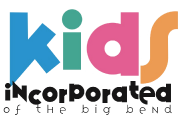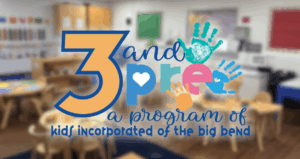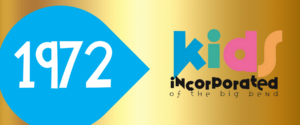Have you ever wondered about the best age to start teaching your child about organizing their toys and cleaning their rooms? Many psychologists agree children develop most of their basic habits by age 3, meaning you want to begin demonstrating positive examples as early as 9 months. How you demonstrate, interact and teach them will change as your child gets older and their personalities come into play. However, implementing a few basic principles around cleaning and organizing will help you and your child maintain good habits, regardless of age.
Why Organizing and Decluttering Matters
Research has shown that children who live in homes that are overcrowded with a lack of order have significantly more challenges. They test lower on cognitive, self-regulatory and language abilities. They also test higher on problem behaviors and learned helplessness than children raised in less chaotic households. The lack of structure and challenge in developing good habits such as organizing and cleaning up after themselves contributes to the learned helplessness and leads to lower expectations and a lack of persistence. Even if you can easily keep up with the decluttering and cleaning on our own, teaching your child how to tidy up their space enables better time management, study behaviors and healthy habits for life.
Disorganization – not lack of space – causes 80 percent of household clutter.
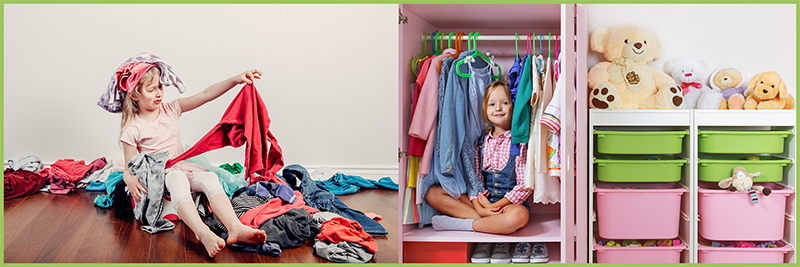
A Place for Everything
A UCLA study found a new child in the family increases inventory of possessions by 30 percent during the preschool years. The diapers and crib are necessary. What presents a challenge is the abundance of toys, clothes and accessories that come from well-meaning family and friends. The more enthusiastic the giving, the more difficult it becomes to corral the clutter.
To put the 12 teddy bears and bevy of booties in perspective, consider the following statistic from the National Association of Professional Organizers.
80 percent of the items we keep are never used!
In order to reach the goal of having a place for everything, start the corralling with containers. No need to be too fancy, a repurposed bookcase with baskets or boxes can work wonders. There are likely gifts that have special meaning or favorite toys that will find their designated place. It is a great idea to have an extra box held back with alternate toys to rotate through on occasion.
In order to reach the goal of having a place for everything, start the corralling with containers. No need to be too fancy, a repurposed bookcase with baskets or boxes can work wonders. There are likely gifts that have special meaning or favorite toys that will find their designated place. It is a great idea to have an extra box held back with alternate toys to rotate through on occasion.
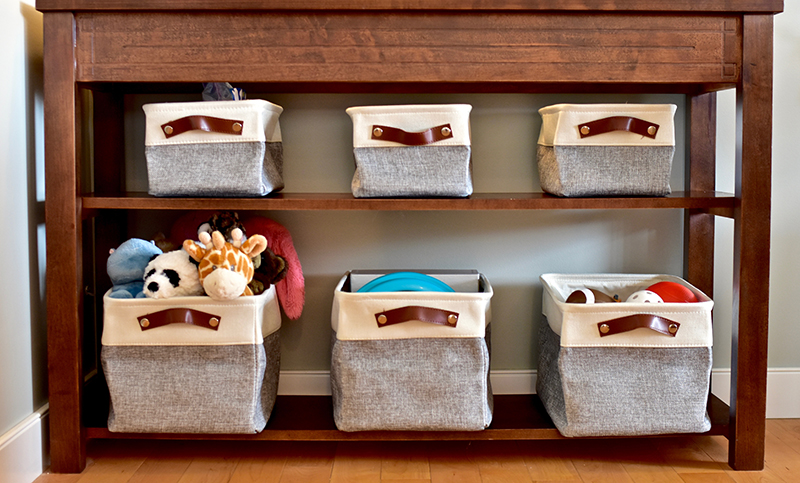
As you are organizing, you may become overwhelmed with too much “stuff’ – totally understandable, especially when it comes to children’s toys. A University of California study found the United States has 3.1 percent of the world’s children, but purchases 40 percent of the world’s toys.
Consider asking that gifts be limited to one item per birthday and any other money the giver would have spent instead be directed toward the child’s future education or financial security. Express your desire to spend less time cleaning and more time making memories with your child, family and friends.
In the average home, getting rid of clutter would eliminate approximately 40 percent of housework.
The Daily Mail estimated we will each spend more than 3,600 hours in our lifetime searching for misplaced items. There were not separate numbers totaling the time spent looking for a child’s favorite blanket or toy. If nothing else, consider the frustration and minutes saved when there truly is a place for everything and everything in its place.
Age Appropriate Organizing Activities
You can begin organizing and decluttering your child’s room while they are infants. As they become more aware of their surroundings, they naturally watch what you are doing and pay attention to your tone of voice. Around 9 months is a great time to start purposely showing them you are making a point to place items on the floor in boxes, folded clothes in drawers and outerwear on toddler-height hooks. Smiling, counting and naming the objects may seem premature, but experts agree that babies begin understanding language long before they can speak any words.
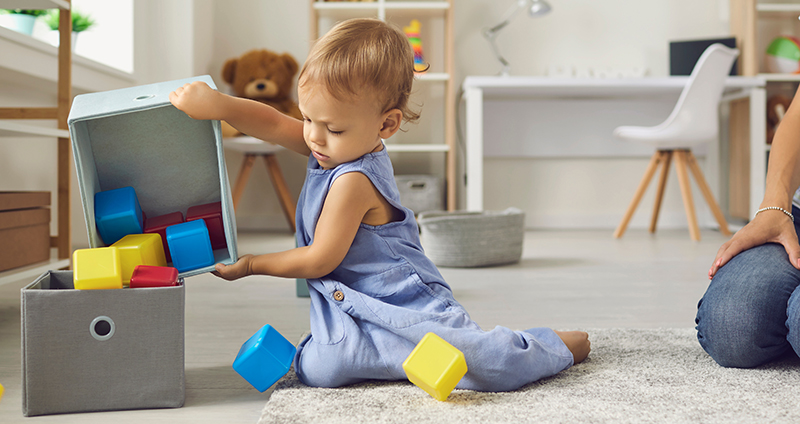
As your toddler becomes mobile, the opportunities to foster good habits around cleaning and organizing expand. It can be as simple as clapping when the dinosaur is deposited in the toy tray you’re holding next to them. If enthusiasm is in short supply for either or both of you, try singing one of the cleanup songs found on You Tube. Yes, there are songs with video to help children become excited about cleaning up after themselves.
From 18 months onward is the time to encourage the naming of colors, shapes and counting. The age at which actual naming occurs with any accuracy varies. Beyond the benefit of fostering good habits, the time spent together is an investment in your child’s development. The average 2-year-old adds around five words to their vocabulary every day. Imagine the positive impact when naming a variety of animals, objects and numbers while cleaning up together.
Note: A Stanford study of 2-year-olds found the way you structure a sentence when naming colors has a significant impact on recall. For best results use color names after nouns. Instead of “the red balloon” say “the balloon that is red.”
For ages 3-5, putting their books and toys away in specified containers is within reason. The most important point is to have a dedicated location that each group of items is placed every time they are put away. If there are too many toys out, the task will be overwhelming. If your child is struggling with organizing as they go, begin picking up with them and get the space to a point that only a few items are left for them to deal with. Make it a celebration when they stack, stuff or swing the last stuffed bear in place.
From 6 onward, the tasks can and should grow in frequency and intricacy. Putting clothes away eventually grows into learning to fold. Taking unbreakable dishes to the counter moves to setting and clearing the table of durable items. Putting the toothbrush back in place shifts to being able to organize and clean the whole counter. Their room goes from you helping them every time to allowing them choices of timing and trying new ideas.
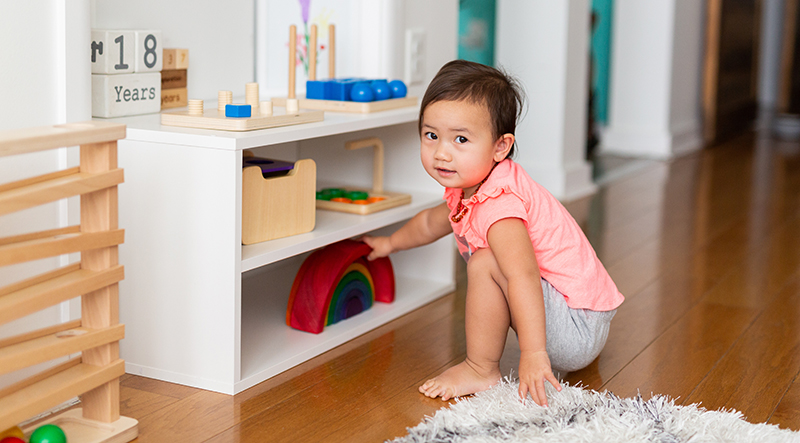
Best Practices
- Helping your child develop good time management can start early. Remember to give a five minute warning before clean-up time, no matter their age, so they are not caught off guard.
- Even at the earliest stages you can ask them if they would like to clean up the dinosaur or the cow. Make it a habit for yourself to ask either/or questions, not yes/no.
- Children are naturally curious. Encourage their interest in helping by having child-sized brooms, rakes and dust cloths.
- Don’t discourage creativity even though it can be messy. Having fun can include the painting and the clean up!
- Be as consistent as possible. Make it a daily ritual to get a minimum amount done like stacking the books. That way, on days when crankiness outweighs laughter the habit of organizing is still being reinforced.
- While cleaning and picking up doesn’t always have to be turned into a game – make it fun when possible. Some days your child may put away the blue toys, another day it could be anything that is soft.
- Work together to go through unused toys and books with the dual goal of decluttering and donating. Involve your child in the decisions and help them build empathy for those in need.
Above all, understand that as your child grows, so will their personal preferences. Allow changes as they come, being more focused on the outcome than the process. The priority is developing a lifelong habit of organizing and maintaining a healthy environment. Keep sessions short and simple to start, finding the positive in their efforts. As they grow, so should accountability and flexibility. The underlying consistency and responsibility of organizing and cleaning up after themselves are key in fostering similar behaviors in other areas of their life. Even if your child is past the ages discussed, it’s never too late to start. Lead by example, talk it through and ease in to helping them grow positive, lifelong habits!
Kids Incorporated of the Big Bend is here to help children 0-3 and their families in Leon, Madison and Jefferson counties. We are an Early Head Start resource that can assist in your infant or toddler in reaching developmental milestones. We welcome new and gently used books and clothing that result from your decluttering activities. Our largest grant allows for a monetary match of value for each item you donate.
Click here to learn more about donating. We are always looking for volunteers, too!
